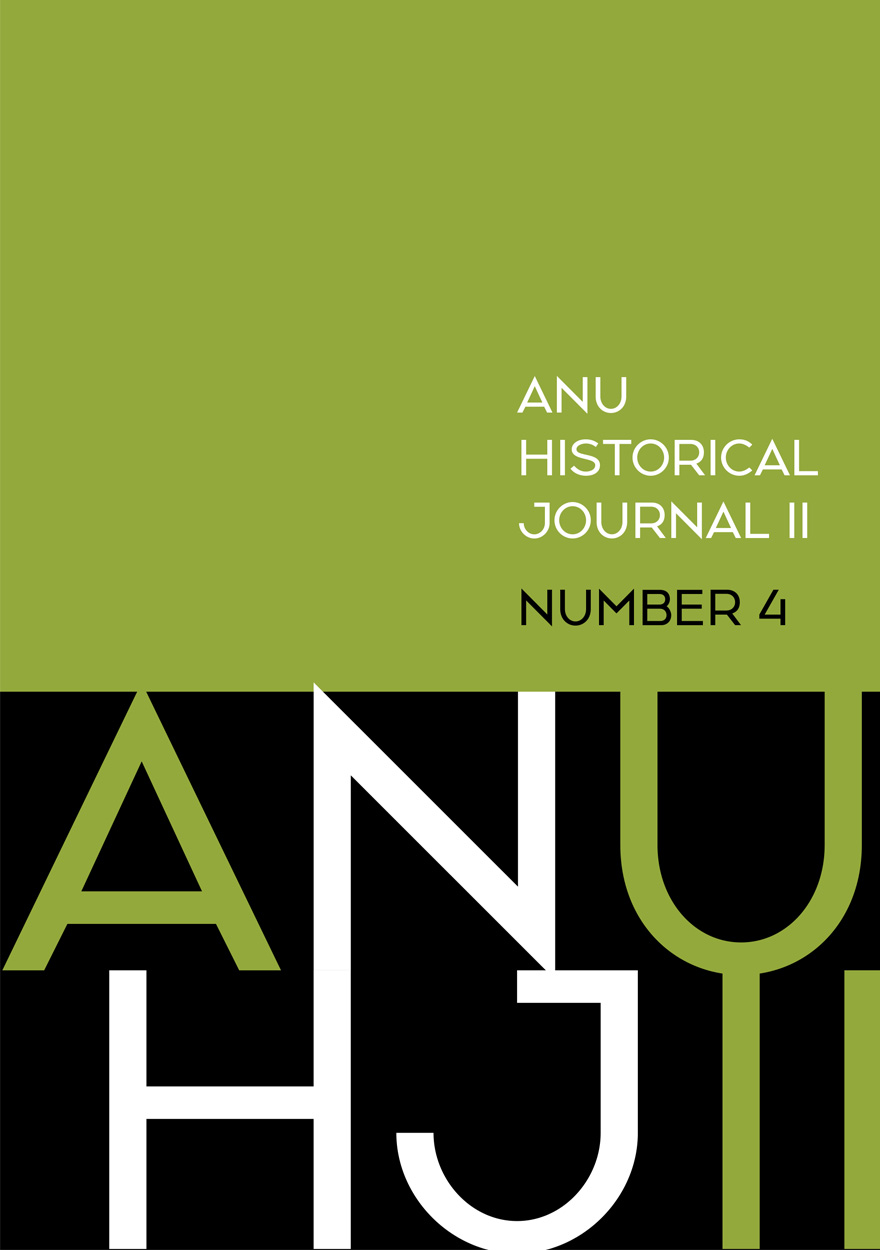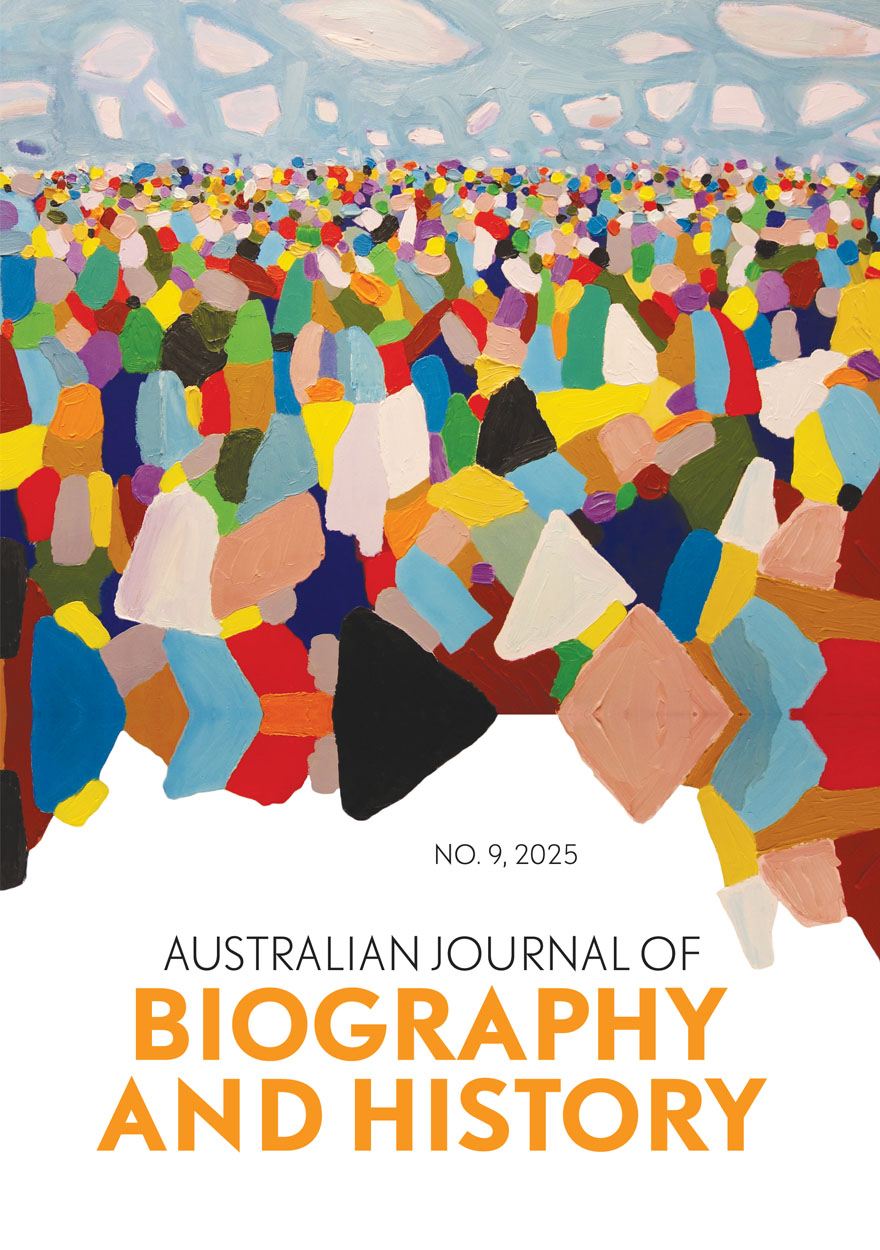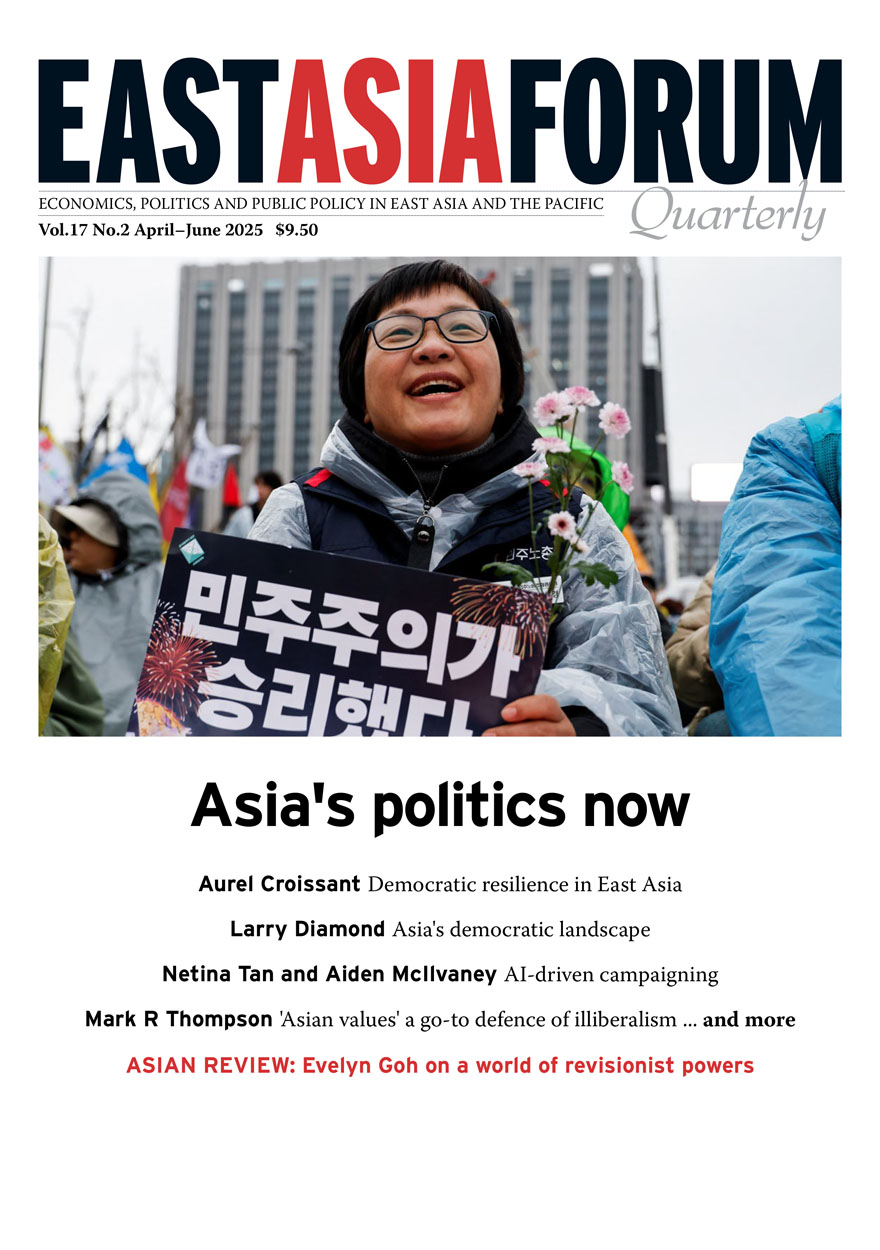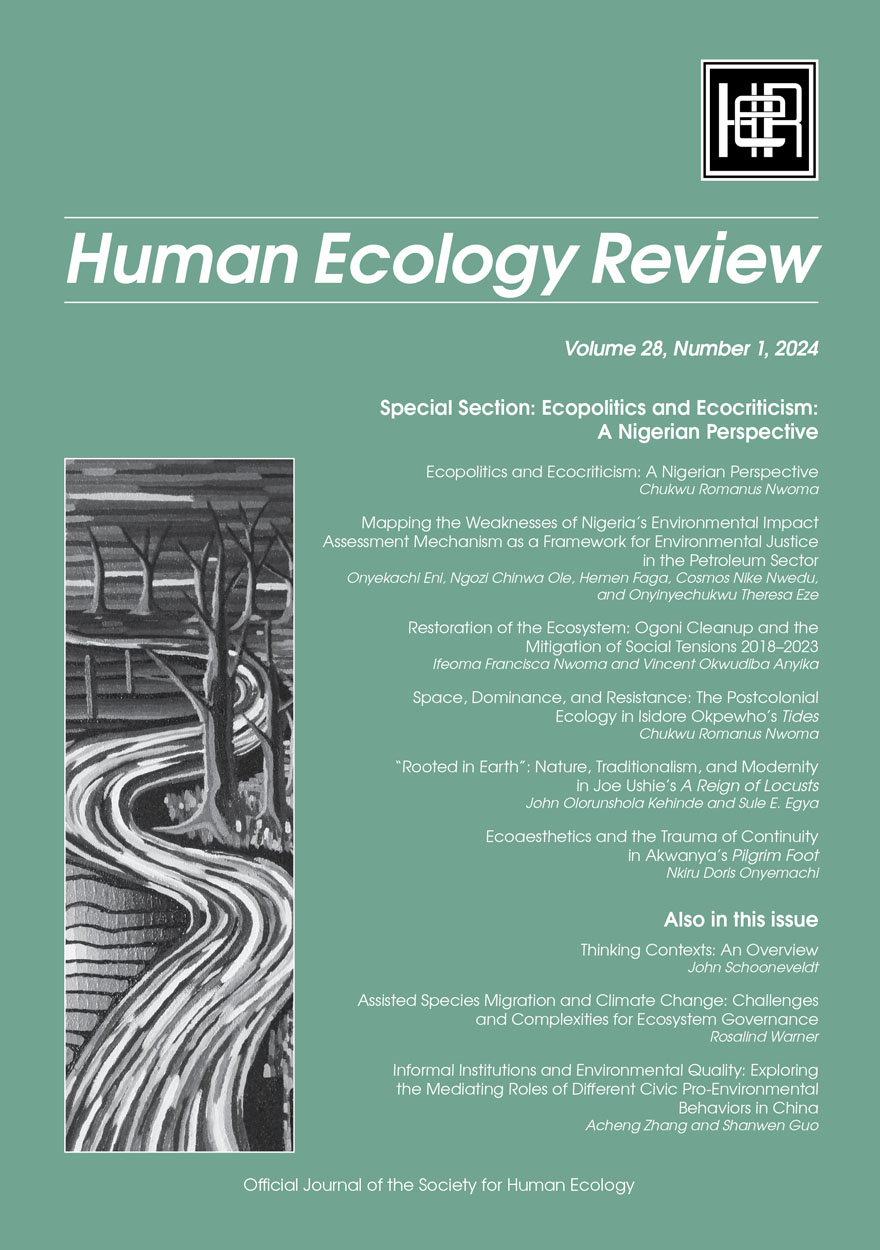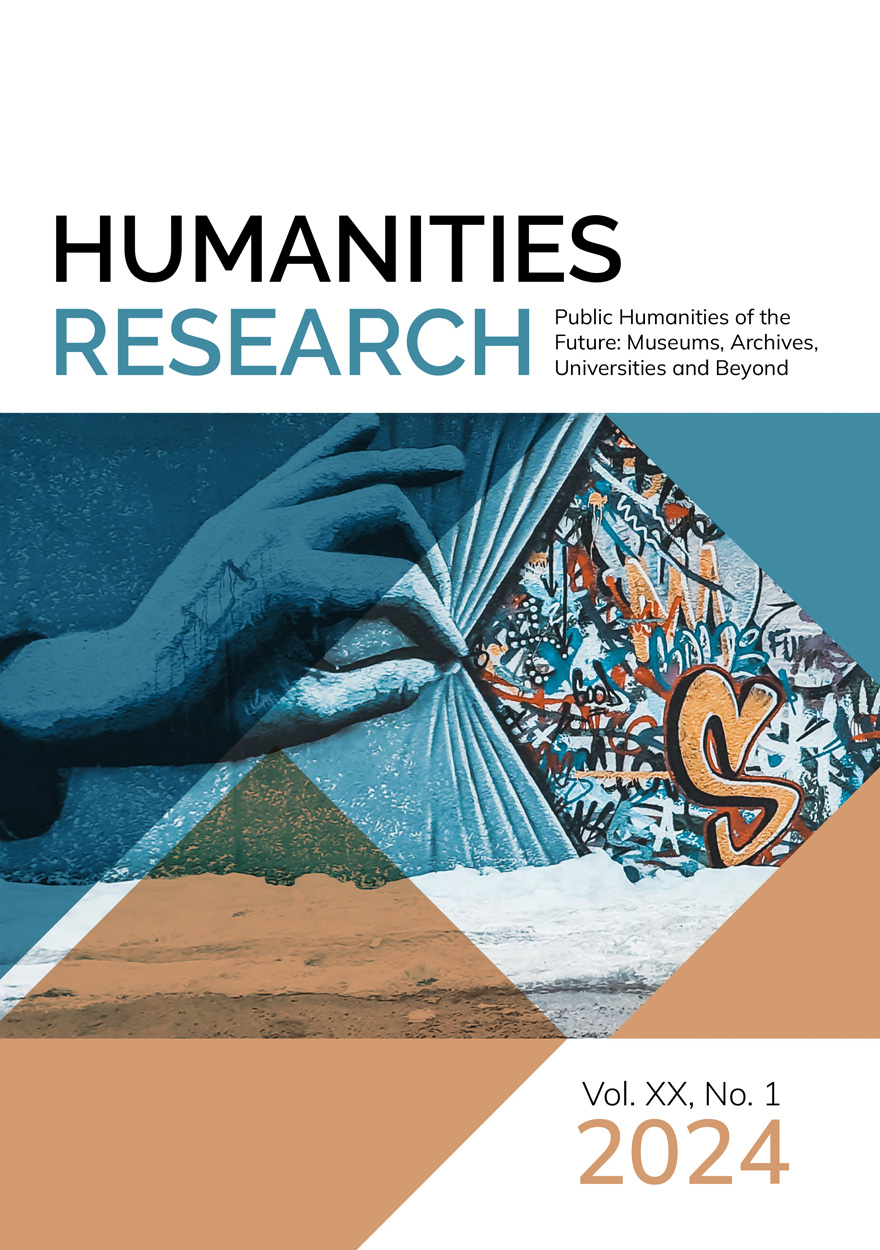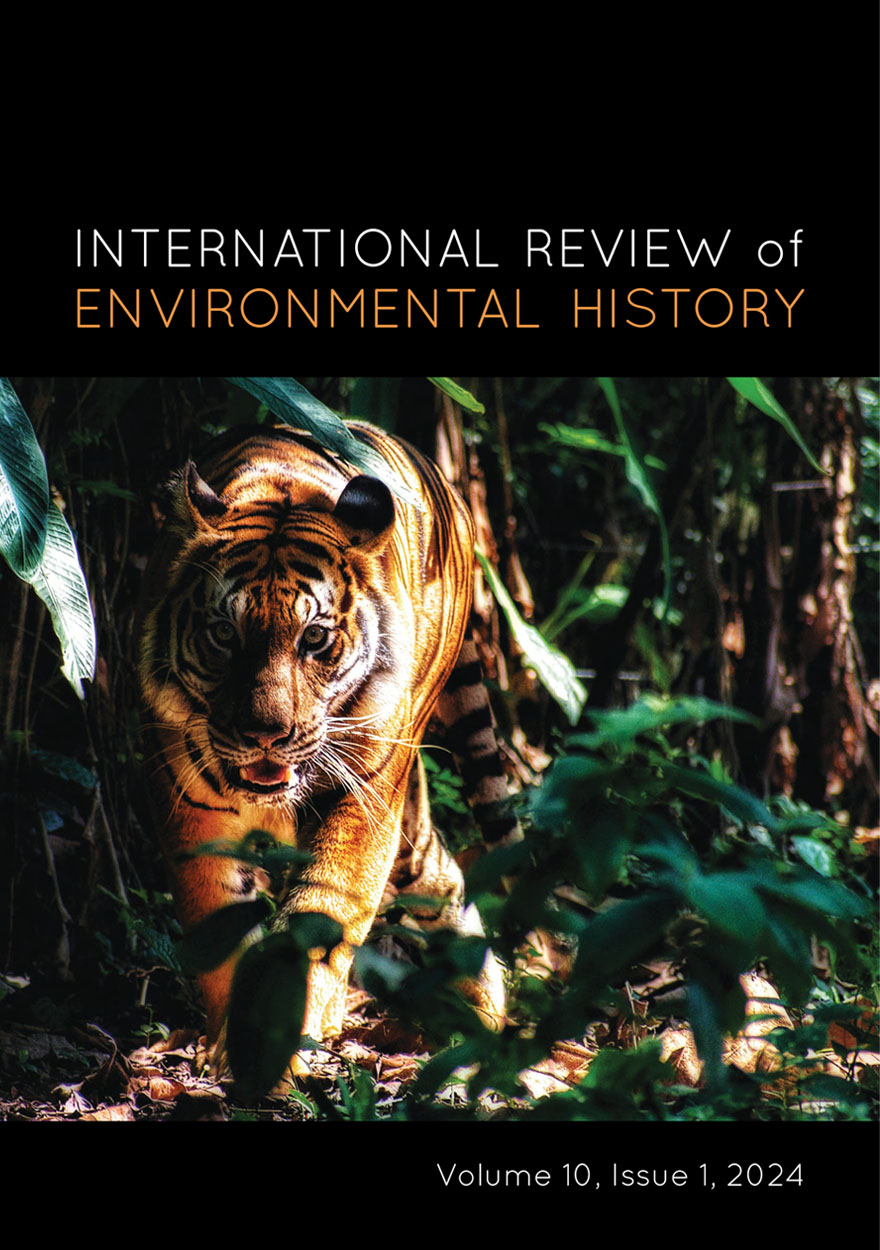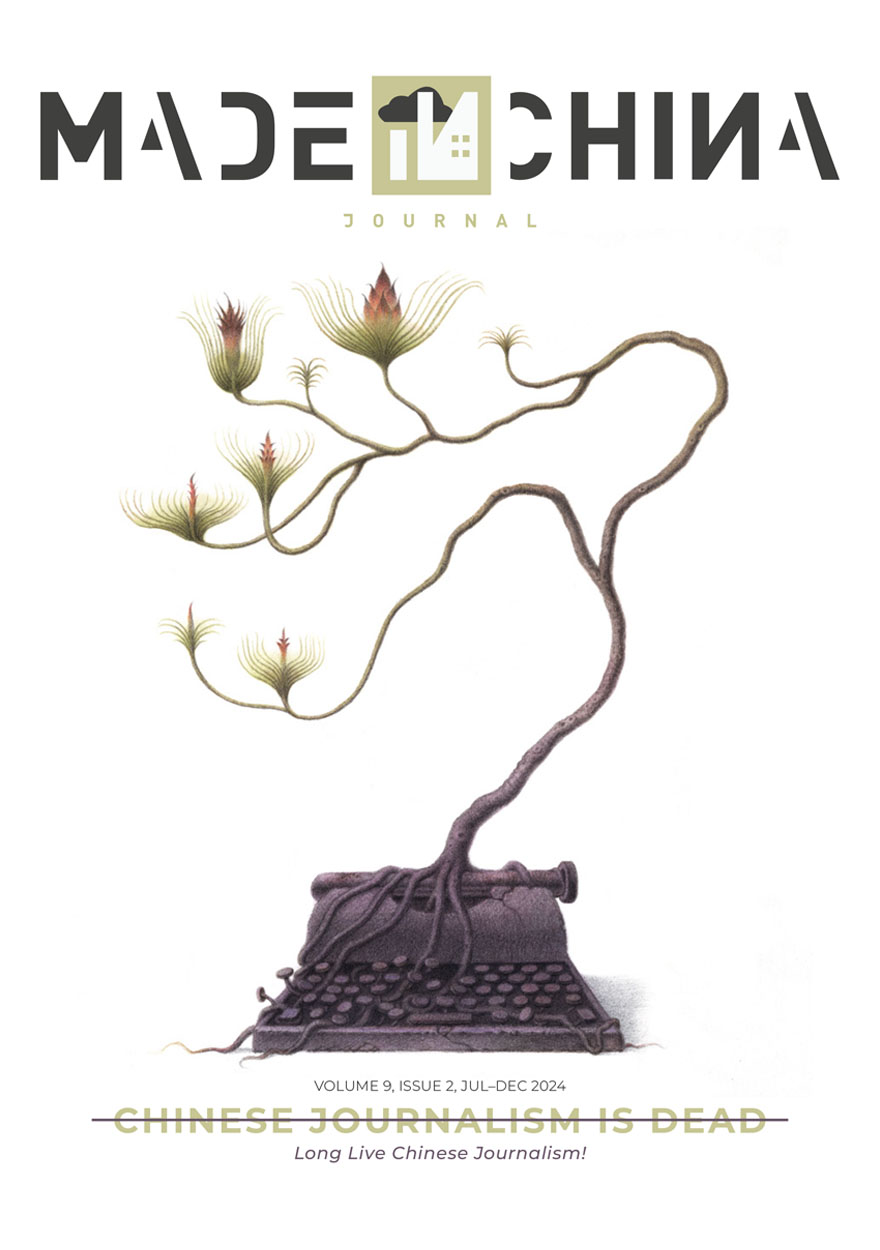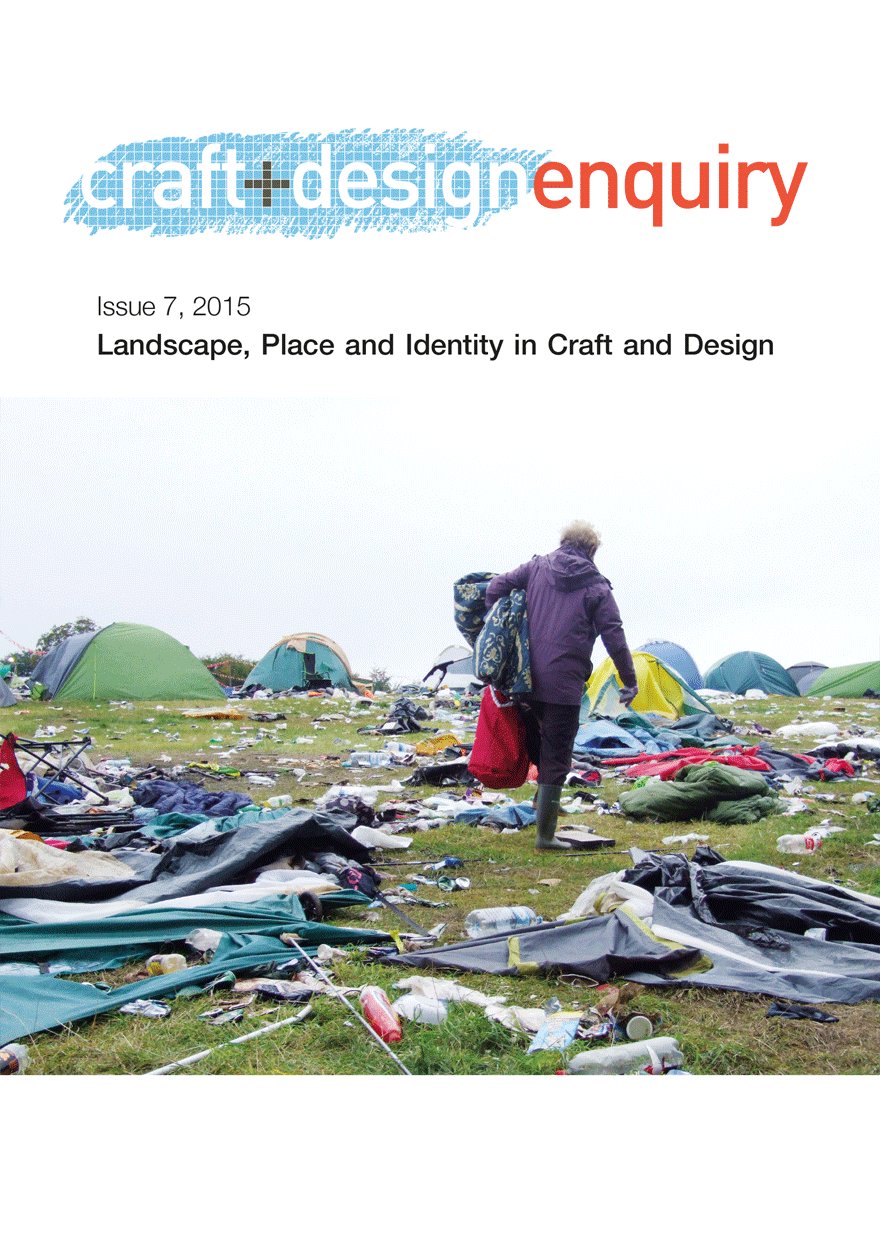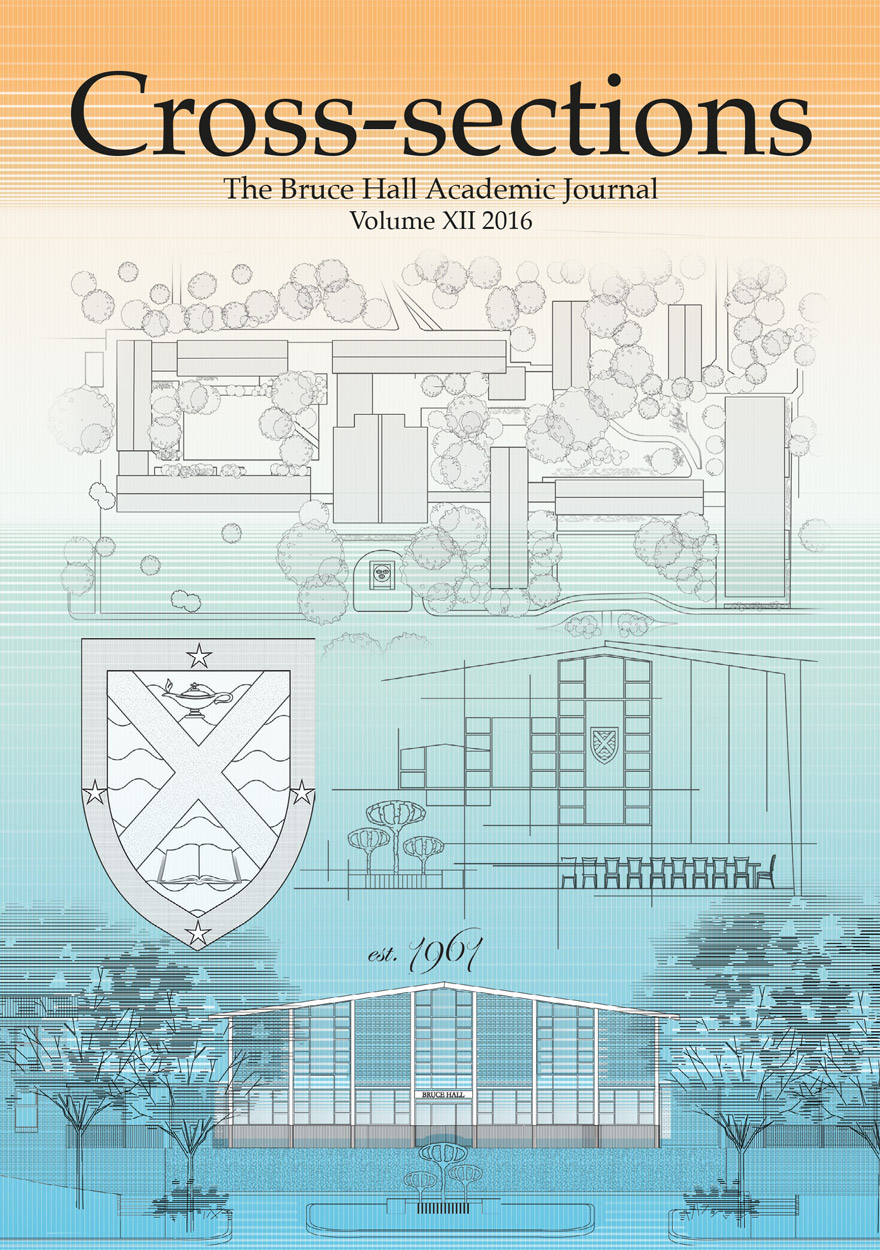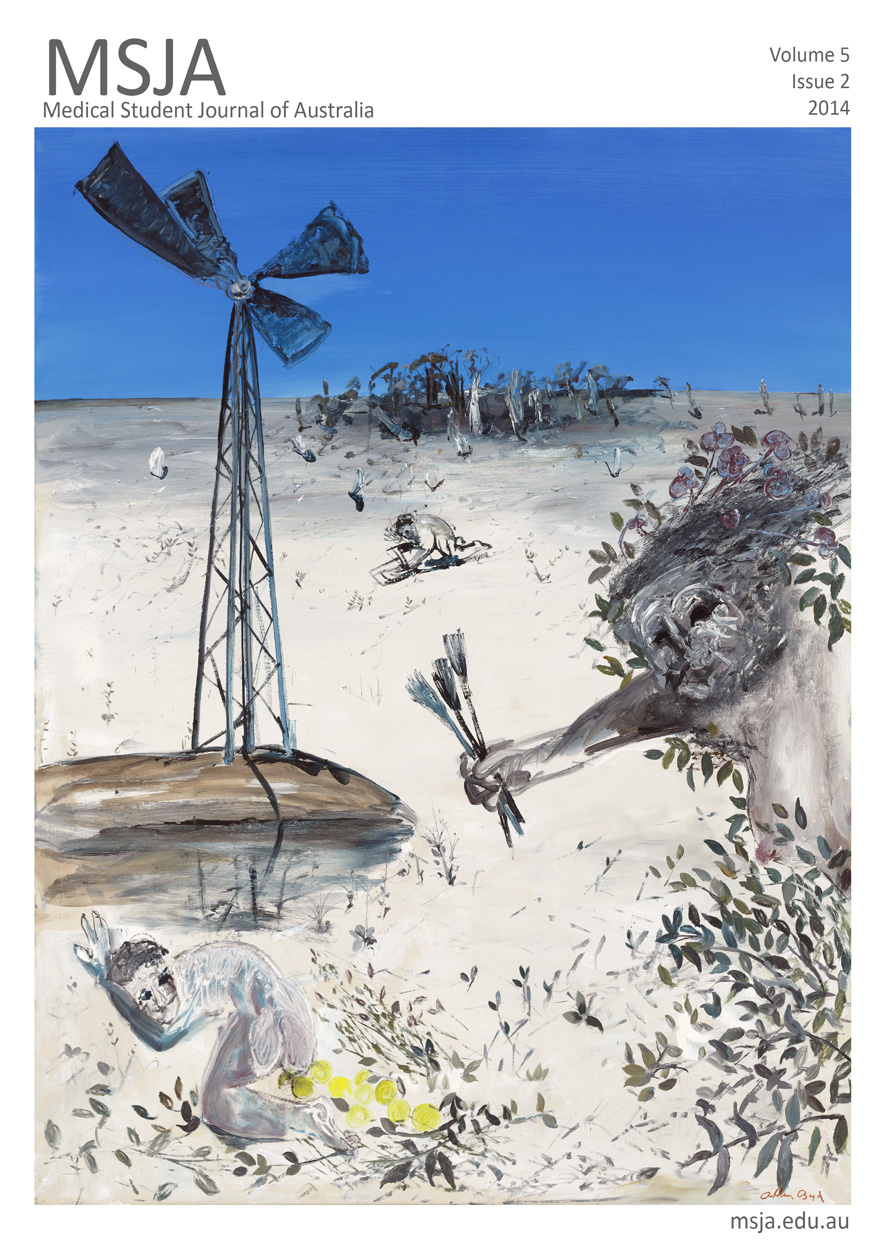Journals
Browse or search a variety of academic journals maintained by ANU Press, or find out more about the journal authors. Download the book for free or buy a print-on-demand copy.
Mark Busse »
Mark Busse is Senior Lecturer in Social Anthropology at the University of Auckland. His research concerns social organization, reciprocity and markets, intellectual and cultural property, and inequality with a geographical focus on Papua New Guinea. He has carried out long-term ethnographic research among Boazi-speaking peoples in the Lake Murray-Middle Fly area of Papua New Guinea since 1982. That research has focused on dual organization, sister exchange marriage, gender and inequality, history, and regional integration. Before moving to New Zealand in 1999, Mark worked for nine years at the Papua New Guinea National Museum first as Curator of Anthropology and then as Assistant Director for Science, Research and Consultancy. His current research, which is funded by the Royal Society of New Zealand, concerns the fresh food market in Goroka in the Eastern Highlands Province of Papua New Guinea. It addresses issues of urban food security through an examination of the market as a set of complex social relations and from the perspectives of the diverse participants in the market rather than through the application of Western economic models. He is co-editor of Protection of Intellectual, Biological and Cultural Property in Papua New Guinea with Kathy Whimp (published by ANU Press) and Ownership and Appropriation with Veronica Strang (published by Berg).
John Uhr »
Professor John Uhr, author of Terms of Trust and of Deliberative Democracy in Australia, is inaugural Director of the Centre for the Study of Australian Politics, School of Politics and International Relations at The Australian National University.
David Eng »
David Eng is a Lecturer in Philosophy at Victoria University of Wellington. Previously he was an Assistant Professor at California State University Bakersfield for three years. When he moved to New Zealand in 2003, he worked for the Tertiary Educational Commission up until 2007. His areas of research include Epistemology, Social Epistemology, Philosophy of Mind, Aesthetics, and Philosophy of Evaluation.
Ahmad Kusworo »
Ahmad Kusworo received his first degree in agriculture from the University of Lampung and conducted research in the province with Friends of Nature and Environment (WATALA) and World Agroforestry Centre (ICRAF) before beginning his degree program at ANU. Since completing his PhD, Ahmad Kusworo has worked for World Wildlife Fund (WWF) Indonesia and UNDP Indonesia as well as having served as the Indonesian Research Coordinator for the ANU Crawford School’s Australia Indonesia Governance Research Partnership. He is currently a Technical Advisor for Fauna & Flora International’s Indonesia Programme.
Gordon Briscoe »
BA (Hist), MA, PhD Dr Gordon Briscoe, from the Marduntjara/Pitjantjatjara peoples of Central Australia, is a long-standing Indigenous activist, organiser, researcher, writer, teacher and mentor. He played a key role in inspiring ANU History Program to establish its Centre for Indigenous History and became the Centre’s inaugural Research Fellow in 2003. In 2004 he was awarded the Order of Australia for services to Aboriginal health, legal services and education. Dr Briscoe helped form an Aboriginal Progress Association in the late 1950s. He worked for the Foundation for Aboriginal Affairs and the Aboriginal Legal Service (a body he had helped to establish) in the late 1960s. In 1972, he helped establish a health service for the growing urban Aboriginal population in Sydney. He was also a Field Officer for the Commonwealth Office of Aboriginal Affairs and a senior liaison officer in the Department of Health and Acting Director of Professor Fred Hollows National Trachoma and Eye Health Program, where he advised on cultural protocols for approaching Aboriginal communities. Dr Briscoe began his academic career in 1981, studying history and politics at ANU. He gained his PhD on Indigenous health in the RSSS History Program in 1997. His current research projects include the Sydney Harbour Trust project, the ‘Native Census, 1920-44′, an Indigenous population study, and ‘Aborigines Between The Wars: 1920-1944’.
Christina Parolin »
Dr Christina Parolin researches in the field of early nineteenth century British radicalism. In 2009, she was awarded the J. G. Crawford Prize for her study, Radical Spaces, which explores the connection between architecture and space and popular radical culture in early 19th century London. During 2010-11 she held a Visiting Fellowship at the Humanities Research Centre, The Australian National University. Christina is currently the Executive Director of the Australian Academy of the Humanities.
Her publications include: ‘The ‘She-Champion of Impiety’: a case study of female radicalism’ in M.T Davis and Paul. A Pickering (eds), Unrespectable Radicals? Popular Politics in the Age of Reform, Ashgate, 2008; ‘Let us have truth and liberty’: contesting Britishness and Otherness from the prison cell, London 1820-26’, Humanities Research, vol xiii, no.1 2006, pp.71-84; and Michael Davis, Iain McCalman, Christina Parolin (eds) Newgate in Revolution: An anthology of Radical Prison Literature in the Age of Revolution, Continuum Press, London, 2005. Her latest publication is Radical Spaces: Venues of Popular Politics in London 1790-c.1845, ANU Press, 2010.
Porer Nombo »
Porer Nombo is Local Government representative (Komiti) for the villages of Reite, Sarangama and Marpungae in Ward 16 of Mot 1 District on the Rai Coast of Papua New Guinea, a position he has been asked to occupy since the early 1980s. Growing up in the village in the 1950s and 60s, he never learned to read or write but was educated about plants and healing, among other things, by his elders, and is recognised as the leading local authority on kastom (effective modes of action from past and present). In 2000, he gave a presentation to the Motupore Island Seminar on Intellectual and Cultural Property in Port Moresby organised by the University of Papua New Guinea, and in 2009 he visited the UK at the request of the British Museum to assist them in their work.
Christopher B. Yardley »
Chris Yardley worked as a salesman in the computer industry for 46 years, during 1961–2005. His career, following every opportunity afforded, resulted in him living and working in five countries during this time. He has travelled extensively in some thirty countries. He has a real interest in the political and cultures of these countries and how it determines the salesman’s approach to doing business. Prior to retirement he undertook making a record of the computer industry in which he was working coming to the conclusion that it had been the front-line salesmen who had created the computer and communications explosion we have seen since the 1980s.
Post retirement he has undertaken a Master of Science Communication at the Australian National University and followed that with a science communication study leading to a PhD.
David McDonald »
David McDonald BA, DipSocWk, MA, GradDipPoplnHlth is a social scientist with research interests including dialogue, knowledge integration and building evidence-based public policy. He has wide experience in research & evaluation, policy analysis and policy & program development, particularly in the alcohol and other drugs, criminal justice and related fields.
David is a Visiting Fellow at ANU National Centre for Epidemiology and Population Health and the Director of the Canberra-based consultancy Social Research & Evaluation Pty Ltd. Earlier positions he has held include Senior Criminologist at the Australian Institute of Criminology, and Deputy Head of Research at the Royal Commission into Aboriginal Deaths in Custody.
Arif Zamhari »
Arif Zamhari is a lecturer in Islamic State University in Malang and Al-Hikam College in Malang. He is also active in an interfaith dialog project held by International Conference of Islamic Scholars (ICIS) in Jakarta.
Chris Aulich »
Chris Aulich is a Professor of Public Administration at the ANZSOG Institute for Governance at the University of Canberra. He joined the University after a decade in the ACT and Commonwealth public services. Since then he has worked extensively on tracing Australia’s policies of privatisation from Hawke-Keating through to John Howard’s government and has published extensively in academic journals, professional magazines and books on issues relating to both local government and to privatisation.
Chris has jointly edited four books, three of which mapped the main developments in the Howard and Rudd government periods. He has held visiting positions at St Andrews University and the University of Hong Kong and has extensive experience teaching courses in public administration in China, Singapore, Hong Kong, Cambodia, Malaysia and Bhutan.
Mark Evans »
Professor Mark Evans is the Director for the ANZSOG Institute for Governance. This role draws on Mark’s considerable international experience in supporting and training senior civil servants and in evaluating public policy programs. The emphasis of his work at ANZSOG will be fourfold: the provision of the ACT with strategic training and research support; the delivery of an Executive MPA module in designing public policies; the development of short courses in conflict transformation; and, in the medium-term the development of an international MPA program.
Before taking this role, Mark was Head of the Department of Politics and Director of York MPA and professional training programs at the University of York in the United Kingdom. Between 1998 and 2009 Mark played the central strategic role in the development of the department’s graduate school and the creation of three successful interdisciplinary research centres – York MPA and professional training programmes, Politics, Economics and Philosophy and Post-war Reconstruction and Development.
Mark has also played an international role in supporting good administrative practices in public administration in developed and developing contexts as well as the reconstruction of public administration in war-torn societies. He has delivered training and managed evaluation projects on the behest of the World Bank, United Nations agencies, the European Union, the Consortium of Humanitarian Affairs in Colombo, Sri Lanka, the British Council and the West Asia and North Africa Forum, as well as government departments such as: the UK’s Cabinet Office and departments for International Development, Work and Pensions, Foreign and Commonwealth Office; China’s National School of Administration and Social and Economic Reform Commission and others.
His recent books include: Constitution-making and the Labour Party (2005); Post-war Reconstruction and Policy Transfer (2009); New Directions in the Study of Policy Transfer (2009) and Understanding Competition States (2009) and has been the editor of the international journal Policy Studies since 2005.
Christine Winter »
Christine Winter is Research Fellow, Race and Ethnicity in the Global South (REGS) at Sydney University, Visiting Fellow at the College of the Asia Pacific, Australian National University, and Associate Senior Fellow, HPRC, University of Queensland.
Her transnational historical research connects the Pacific with Europe and Australasia. She has published widely on National Socialism in Oceania, transnational politics of humanitarianism during WWII, and Germans in the Pacific. Most recently she has published a monograph on the politics of the Neuendettelsauer Mission at the End of the Weimar Republic and the beginning of the Third Reich (Looking after One’s Own, Peter Lang Verlag 2012), and co-edited a volume on Australasian social scientists and the impact WWII had on their scholarship and disciplines (Scholars at War, ANU E-Press, 2012). She is presently working on a project on the legacies of the German colonial empire in the Global South: German Mixed-Race Diasporas in Southern Hemisphere Mandated Territories: Scientific theories, politics and identity transformation.
Christine studied Theology and Comparative Religion in Germany, and received her PhD in history from ANU in 2005. In 2010 she was awarded a postdoctoral fellowships at the University of Queensland. Most recently, in 2012 she was International Visiting Fellow, Research Group Historicizing Knowledge about Human Biological Diversity in the 20th Century, Max Planck Institute for the History of Science (MPIWG), Berlin.
Seumas Miller »
Seumas Miller is a Professorial Research Fellow at the Centre for Applied Philosophy and Public Ethics (an Australian Research Council Special Research Centre) at Charles Sturt University (Canberra) and the 3TU Centre for Ethics and Technology at Delft University of Technology (The Hague). He is the foundation director of CAPPE (2000-2007), Head of the School of Humanities and Social Sciences at CSU 1994-9 and Professor of Philosophy at The Australian National University (2003-11). He is the author or co-author of over 150 academic articles and 15 books, including Investigative Ethics: Ethics for Police Detectives and Criminal Investigators (Blackwell, 2014), Security and Privacy (lead author John Kleinig) (ANU Press, 2012), Moral Foundations of Social Institutions (Cambridge University Press, 2010), Terrorism and Counter-terrorism: Ethics and Liberal Democracy (Blackwell, 2009), Corruption and Anti-corruption (Prentice Hall, 2005), Ethical Issues in Policing (Ashgate, 2005), and Social Action: A Teleological Account (Cambridge University Press, 2001).
Lynette Russell »
Lynette Russell is an ARC Professorial Fellow at the Monash Indigenous Centre, Monash University, Melbourne. She has published extensively on history and colonialism, cross-cultural encounters and frontier relations.
Leigh Boucher »
Leigh Boucher is a Lecturer in History at Macquarie University, Sydney. He has published research on liberalism, race and settler colonialism in nineteenth-century Victoria.
Richard Blewett »
Richard Blewett, an Aussie by birth, left for Africa and UK in the 1970s. He graduated 1st class Hons in Geology from Swansea University (Wales) in 1985. Following a year in industry in South Africa, he completed a PhD in structural geology from Leicester University in the UK (1989). During this time he worked in the French Alps, Canadian Appalachians, British Caledonides and Nepalese Himalaya.
Richard joined Geoscience Australia in 1990, and has worked in North Queensland, the Pilbara, Sultanate of Oman, the Yilgarn, Gawler–Curnamona, Arunta and Mugraves. Richard was the Chief Editor of Shaping a nation: A geology of Australia, which was a joint GA–ANU Press publication for the Brisbane 2012 International Geological Congress. He is interested in the management of science and research and has an MBA from Deakin University (2001).
He is presently the Group Leader of Regional Geology and Mineral Systems in the Minerals and Natural Hazards Division at Geoscience Australia.
Thomas Reuter »
Prof Thomas Reuter is a Future Fellow of the Australian Research Council, located at the Asia Institute of The University of Melbourne. After obtaining his PhD from ANU in 1997, he taught at Heidelberg University, held post-doctoral and QElI Fellowships at Melbourne, and a Research Fellowship at Monash University. He was President of the Australian Anthropological Association (2002-2005) and is the chair of the World Council of Anthropological Associations, and an executive member of the International Union of Anthropological and Ethnological Sciences. Research has focused on Indonesian ethnology (Bali, Java, Kalimantan), New Social Movements, Religion, Political Anthropology, Social Organization, Status, Globalisation and General Theory. Thomas has authored more than fifty articles and the following seven books: Custodians of the Sacred Mountains: Culture and Society in the Highlands of Bali. Honolulu: Hawaii UP, 2002. The House of Our Ancestors: Precedence and Dualism in Highland Balinese Society. Leiden (Netherlands): KITLV Press, 2002. Inequality, Crisis and Social Change in Indonesia: The Muted Worlds of Bali. London: Routledge, 2003. Budaya dan Masyarakat di Pegunungan Bali. Jakarta: Yayasan Obor, 2005. Sharing the Earth, Dividing the Land: Land and Territory in the Austronesian world. Canberra: ANU Press, 2006. Global Trends in Religion, and the Reaffirmation of Hindu Identity in Bali. Clayton: Monash Asia Institute Press, 2008. The Return to Constitutional Democracy in Indonesia, Caulfield: MAI Press, 2010.
Don Niles »
Don Niles is Acting Director and Senior Ethnomusicologist of the Institute of Papua New Guinea Studies. He is interested in research and publication on all types of music and dance in Papua New Guinea, including traditional, popular, and Christian forms. The author/editor of numerous books, articles, and audiovisual publications on various aspects of music, dance, and archiving, Don also edits the Institute’s music monograph series (Apwitihire: Studies in Papua New Guinea Musics) and journal (Kulele: Occasional Papers in Pacific Music and Dance). He is a vice president of the International Council for Traditional Music and former editor of their journal, the Yearbook for Traditional Music.
Alistair Noble »
Alistair Noble is an Australian-born pianist, composer and musicologist. He has performed extensively in recital around Australia, and made many broadcasts for the national (ABC) radio. As a chamber musician he has worked many fine performers, and as a piano duo performs regularly with his brother Colin Noble. He was a founding member of the ensemble Lachrymae Musarum (Sydney) and of the Newling Ensemble (Armidale). His compositions have been performed, recorded and broadcast in Australia and North America.
Alistair holds a PhD in composition and musicology, and is currently Head of Theory and a lecturer in Musicology at The Australian National University’s School of Music. Alistair’s primary research area is mid-20th century music, with a special focus on the work of Morton Feldman, Stefan Wolpe and Edgard Varèse.
Fadzilah Majid Cooke »
Fadzilah Majid Cooke is Associate Professor in Environmental Sociology at the School of Social Sciences, Universiti Malaysia Sabah (UMS) an appointment she has held since 2003. At UMS she was Head of the Ethnography and Development Research Unit from 2005 until 2008. Before joining UMS, from 1995 to 1997, she was a Lecturer at the Faculty of Arts, University of Wollongong, Australia. From 1998 to 2002, she won two fellowships, a postdoctoral at RMIT and a research fellowship at The Australian National University (2000 to 2001). She has undertaken research and published in the area of agricultural development, environmental change, customary land and the politics of civil society for close to 15 years starting with her PhD work at Griffith University. She has published nationally and in Europe, the United States, Australia, New Zealand and Singapore.
Gary P. Morriss »
Gary Morriss was born in Singleton, Australia in 1951. He obtained a B.Math. with first class honours in mathematics/physics at Newcastle University in 1976 and gained his Ph.D. in statistical mechanics from Melbourne University in 1980. After postdoctoral appointments at Cornell and ANU, he became a Research Fellow and later Senior Research Fellow at ANU. In 1989 he was appointed as Lecturer in the School of Physics at the University of New South Wales. He is now a Professor in theoretical physics and serves as Undergraduate Director in the School of Physics. His research interests are statistical mechanics and dynamical systems.
Kirsty Gillespie »
is senior curator (anthropology) at the Museum of Tropical Queensland and a member of staff at James Cook University, Townsville, Australia. She received her PhD from The Australian National University in 2008 for research into the music of the Duna people of Papua New Guinea (PNG). Kirsty is the author of Steep Slopes: Music and Change in the Highlands of Papua New Guinea (ANU E Press, 2010) amongst other publications. Since 2007 Kirsty has worked with the people of the Lihir Island Group, PNG, on a cultural heritage programme as they experience large-scale gold mining. In 2013 she co-curated the exhibition Musical Landscapes of Lihir at the University of Queensland (UQ) Anthropology Museum. Kirsty is also an honorary fellow at the Centre for Social Responsibility in Mining, Sustainable Minerals Institute, UQ.
P.G. Toner »
Peter Toner is an Associate Professor in the Department of Anthropology at St Thomas University in Fredericton, New Brunswick, Canada. He is a social anthropologist and ethnomusicologist who has conducted research and written on the relationship of music to sociality, ritual, and place in northern Australia; on digital audio, memory, and archival institutions; and on folk music and the invention of tradition in Atlantic Canada.
Bob Breen »
Bob Breen’s experience in first-hand research on international and regional peace support operations began in Somalia in 1993 and continued in Rwanda, the Middle East, Mozambique, Bougainville and East Timor periodically until 2002 when he began a PhD program at ANU, graduating in 2006. In 2007 he visited Iraq and Afghanistan as part of a review of Australian military force projection. In 2008 he published Struggling for Self Reliance: Four case studies of Australian Regional Force Projection in the late 1980s and the 1990s. In the same year he also co-authored a monograph for the Land Warfare Studies Centre, The world looking over their shoulders: Australian Strategic Corporals on Operations in Somalia and East Timor. He published two studies for the Australian Strategic Policy Institute on meeting security challenges in the South Pacific and strengthening civil-military collaboration for responding to overseas emergencies in 2009 .
Currently, he is writing a volume of the official history of Australian peacekeeping in the South Pacific 1980-2006 and completing a manuscript on the Adaptive Army initiative 2007-2010.
ANU Press Journals
Aboriginal History Journal »
Since 1977, the journal Aboriginal History has pioneered interdisciplinary historical studies of Australian Aboriginal people’s and Torres Strait Islander’s interactions with non-Indigenous peoples. It has promoted publication of Indigenous oral traditions, biographies, languages, archival and bibliographic guides, previously unpublished manuscript accounts, critiques of current events, and research and reviews in the fields of anthropology, archaeology, sociology, linguistics, demography, law, geography and cultural, political and economic history.
Aboriginal History Inc. is a publishing organisation based in the Australian Centre for Indigenous History, Research School of Social Sciences, The Australian National University, Canberra.
For more information on Aboriginal History Inc. please visit aboriginalhistory.org.au.
Submission details
Please send article submissions to aboriginal.history@anu.edu.au.
Articles of about 7,000 words in length (including footnotes and references) are preferred, but submissions up to 9,000 words will be considered. Please submit an electronic version of the paper (text only without embedded images or scans) in Microsoft Word or RTF format, along with a short abstract and author biography as a separate document.
ANU Historical Journal II »
The ANU Historical Journal II (ANUHJ II) is an open-access, peer-reviewed academic history journal of the ANU College of Arts and Social Sciences and the ANU College of Asia and the Pacific. It is a revival of the ANU Historical Journal, which was published between 1964 and 1987. Contributors to the first journal included academics such as Ken Inglis, Manning Clark, John Ritchie and Oliver MacDonagh along with then-emerging scholars Iain McCalman, Michael McKernan, Margaret George, Coral Bell, John Iremonger, Alastair Davidson, Susan Magarey and Rosemary Auchmuty. As well as upholding the Journal’s commitment to the work of students and early career researchers, the ANUHJ II has expanded its focus to include memoirs, short articles and long-form book reviews.
The ANUHJ II invites submissions from students, graduates and academics of any Australian university.
For more information about the ANUHJ II, please visit anuhj.com.au
Australian Journal of Biography and History »
The Australian Journal of Biography and History is an initiative of the National Centre of Biography (NCB) in the Research School of Social Sciences at The Australian National University. The NCB was established in 2008 to extend the work of the Australian Dictionary of Biography and to serve as a focus for the study of life writing in Australia, supporting innovative research and writing to the highest standards in the field, nationally and internationally. The Australian Journal of Biography and History seeks to promote the study of biography in Australia. Articles that appear in the journal are lively, engaging and provocative, and are intended to appeal to the current popular and scholarly interest in biography, memoir and autobiography. They recount interesting and telling life stories and engage critically with issues and problems in historiography and life writing.
The journal publishes peer-reviewed articles on Australian historical biography, including biographical studies, studies relating to theory and methodology, and the associated genres of autobiography, life writing, memoir, collective biography and prosopography. We are especially interested in articles that explore the way in which biography and its associated genres can illuminate themes in Australian history, including women in Australian society, family history, transnational networks and mobilities, and Indigenous history.
Submission Details
Please send article submissions or abstracts to the Editor, Dr Malcolm Allbrook, National Centre of Biography, The Australian National University. Email: Malcolm.Allbrook@anu.edu.au. Articles should be in the range of 5,000 to 8,000 words (excluding footnotes), although longer submissions may be considered after consultation with the Editor. Style and referencing: please use footnotes in Chicago style, and follow British spelling.
East Asia Forum Quarterly »
East Asia Forum Quarterly grew out of East Asia Forum (EAF) online, which has developed a reputation for providing a platform for the best in Asian analysis, research and policy comment on the Asia Pacific region in world affairs. EAFQ aims to provide a further window onto research in the leading research institutes in Asia and to provide expert comment on current developments within the region. The East Asia Forum Quarterly, like East Asia Forum online, is an initiative of the East Asia Forum (EAF) and its host organisation, the East Asian Bureau of Economic Research (EABER) in the Crawford School of Public Policy in the ANU College of Asia & the Pacific at The Australian National University.
Submission details
Unsolicited submissions to EAF are welcome. An analytic op-ed piece that is accessible to a general audience and written in crisp language is required. The preferred length of submissions is around 800 words. Submissions will be double-blind reviewed and, if accepted for publication, edited for English fluency and house style before returned for clearance by the author. EAFQ does not use footnotes but would be extremely appreciative if hyperlinks to internet sources are included wherever possible. EAFQ reserves the right to determine the title for any piece, but will not publish a piece or a title without permission. A suggested title is appreciated. If you have any further queries, or would like to submit, please contact shiro.armstrong@anu.edu.au.
Human Ecology Review »
Human Ecology Review is a semi-annual journal that publishes peer-reviewed interdisciplinary research on all aspects of human–environment interactions (Research in Human Ecology). The journal also publishes essays, discussion papers, dialogue, and commentary on special topics relevant to human ecology (Human Ecology Forum), book reviews (Contemporary Human Ecology), and letters, announcements, and other items of interest (Human Ecology Bulletin). Human Ecology Review also publishes an occasional paper series in the Philosophy of Human Ecology and Social–Environmental Sustainability.
Submission details
For information on preparing your manuscript for submission, please visit www.humanecologyreview.org. To submit a manuscript to Human Ecology Review, please visit mstracker.com/submit1.php?jc=her, or email humanecologyreviewjournal@gmail.com.
Humanities Research »
Humanities Research is a peer-reviewed, open access, annual journal that promotes outstanding innovative, interdisciplinary and multidisciplinary scholarship to advance critical knowledge about the human world and society.
The journal is co-published by the Humanities Research Centre, The Australian National University, Canberra. It was launched in 1997 and went into hiatus in 2013. In 2022, the journal is resuming publication, reflecting the continuing strength of the humanities at The Australian National University, the rapid development of the interdisciplinary, environmental and public humanities over the last decade, and the opportunities for international collaboration reflected in the resumption of international travel in 2022.
Issues are thematic with guest editors and address important and timely topics across all branches of the humanities.
International Review of Environmental History »
International Review of Environmental History takes an interdisciplinary and global approach to environmental history. It encourages scholars to think big and to tackle the challenges of writing environmental histories across different methodologies, nations, and time-scales. The journal embraces interdisciplinary, comparative and transnational methods, while still recognising the importance of locality in understanding these global processes.
The journal’s goal is to be read across disciplines, not just within history. It publishes on all thematic and geographic topics of environmental history, but especially encourage articles with perspectives focused on or developed from the southern hemisphere and the ‘global south’.
Submission details
Please send article submissions or abstracts to the Editor, Associate Professor James Beattie, Science in Society, Victoria University of Wellington, PO Box 600, Wellington 6142, New Zealand. Email: james.beattie@vuw.ac.nz.
Abstracts should be no more than 200 words, and include a list of keywords. Articles should be in the range 5,000 to 8,000 words (including footnotes), although longer submissions may be considered after consultation with the editor. Style and referencing: please use footnotes in Chicago Style, follow British spelling, and use single quotation marks only. Find out more details about Chicago Style.
Lilith: A Feminist History Journal »
Lilith: A Feminist History Journal is an annual journal that publishes articles, essays and reviews in all areas of feminist and gender history (not limited to any particular region or time period). In addition to publishing research articles on diverse aspects of gender history, Lilith is also interested in publishing feminist historiographical and methodological essays (which may be shorter in length than typical research articles). Submissions from Australian and international early career researchers and postgraduate students are particularly encouraged.
The journal first began publication in Melbourne in 1984. It is the official journal of the Australian Women’s History Network, an organisation dedicated to promoting research and writing in all fields of women’s, feminist and gender history.
For more information about Lilith, please visit www.auswhn.org.au/lilith/.
Made in China Journal »
The Made in China Journal (MIC) is a publication focusing on labour, civil society and human rights in China. It is founded on the belief that spreading awareness of the complexities and nuances underpinning socioeconomic change in contemporary Chinese society is important, especially considering how in today’s globalised world Chinese labour issues have reverberations that go well beyond national borders. MIC rests on two pillars: the conviction that today, more than ever, it is necessary to bridge the gap between the scholarly community and the general public, and the related belief that open-access publishing is necessary to ethically reappropriate academic research from commercial publishers who restrict the free circulation of ideas.
Discontinued ANU Press Journals
Agenda - A Journal of Policy Analysis and Reform »
Please note: This journal ceased publishing in 2021.
Agenda is a refereed, ECONLIT-indexed and RePEc-listed journal of the College of Business and Economics, The Australian National University. Launched in 1994, Agenda provides a forum for debate on public policy, mainly (but not exclusively) in Australia and New Zealand. It deals largely with economic issues but gives space to social and legal policy and also to the moral and philosophical foundations and implications of policy.
Submission details
Authors are invited to submit articles, notes or book reviews, but are encouraged to discuss their ideas with the Editor beforehand. All manuscripts are subject to a refereeing process. Manuscripts and editorial correspondence should be emailed to: william.coleman@anu.edu.au.
Subscribe to the Agenda Alerting service if you wish to be advised on forthcoming or new issues.
Australian Humanities Review »
Please note: This journal ceased publishing with ANU Press in 2012. Current issues are available at australianhumanitiesreview.org.
Australian Humanities Review is a peer-reviewed interdisciplinary journal featuring articles, essays and reviews focusing on a wide array of topics related to literature, culture, history and politics.
craft + design enquiry »
Please note: This journal ceased publishing in 2015.
craft + design enquiry is an open-access, peer-reviewed journal promoting and disseminating research excellence generated by and about the craft and design sector. craft + design enquiry investigates the contribution that contemporary craft and design makes to society, establishing a dialogue between craft and design practice and cultural, social and environmental concerns. It includes submissions from across the field of craft and design from artists and practitioners, curators, historians, art and cultural theorists, educationalists, museum professionals, philosophers, scientists and others with a stake in the future developments of craft and design.
ANU Student Journals
ANU Undergraduate Research Journal »
Please note: This journal is now published via the ANU Student Journals platform; the latest issues can be found here: studentjournals.anu.edu.au/index.php/aurj
The ANU Undergraduate Research Journal presents outstanding essays taken from ANU undergraduate essay submissions. The breadth and depth of the articles chosen for publication by the editorial team and reviewed by leading ANU academics demonstrates the quality and research potential of the undergraduate talent being nurtured at ANU across a diverse range of fields.
Established in 2008, AURJ was designed to give students a unique opportunity to publish their undergraduate work; it is a peer-reviewed journal managed by a team of postgraduate student editors, with guidance from the staff of the Office of the Dean of Students.
Burgmann Journal - Research Debate Opinion »
Please note: This journal is now published via the ANU Student Journals platform; the latest issues can be found here: studentjournals.anu.edu.au/index.php/burgmann
Burgmann Journal is an interdisciplinary, peer-reviewed publication of collected works of research, debate and opinion from residents and alumni of Burgmann College designed to engage and stimulate the wider community.
Cross-sections, The Bruce Hall Academic Journal »
Please note: This journal is now published via the ANU Student Journals platform; the latest issues can be found here: studentjournals.anu.edu.au/index.php/cs
Representing the combined energies of a large group of authors, editors, artists and researchers associated with Bruce Hall at the ANU, Cross-sections collects a range of works (from academic articles and essays to photography, digital art and installation artwork) that represents the disciplinary breadth and artistic vitality of the ANU.
Presenting a challenging and absorbing way for students to hone vital research skills, in the process, Cross-sections nurtures a fruitful environment of collaborative interaction between academics and students.
Medical Student Journal of Australia »
Please note: This journal ceased publishing in 2015.
The Medical Student Journal of Australia provides the medical school of The Australian National University with a platform for medical students to publish their work in a peer-reviewed journal, communicating the results of medical and health research information clearly, accurately and with appropriate discussion of any limitations or potential bias.
Merici - Ursula Hall Academic Journal »
Please note: This journal is currently not publishing any new issues.
Merici is the combined works of undergraduate authors at Ursula Hall. Merici contains research and analysis from a range of disciplines and is thoroughly reviewed by ANU academics to ensure the showcasing of the best Ursula Hall has to offer.
The Human Voyage: Undergraduate Research in Biological Anthropology »
Please note: This journal is now published via the ANU Student Journals platform; the latest issues can be found here: studentjournals.anu.edu.au/index.php/hv
The Human Voyage: Undergraduate Research in Biological Anthropology is a journal that publishes outstanding student articles in all areas of biological anthropology, including primatology, palaeoanthropology, bioarchaeology and human behavioural ecology.
While the primary goal of this journal is to publish work of the highest quality authored by undergraduate students, it will also educate students in regards to publishing in academia. All submissions will be peer-reviewed and edited by ANU academic staff.





